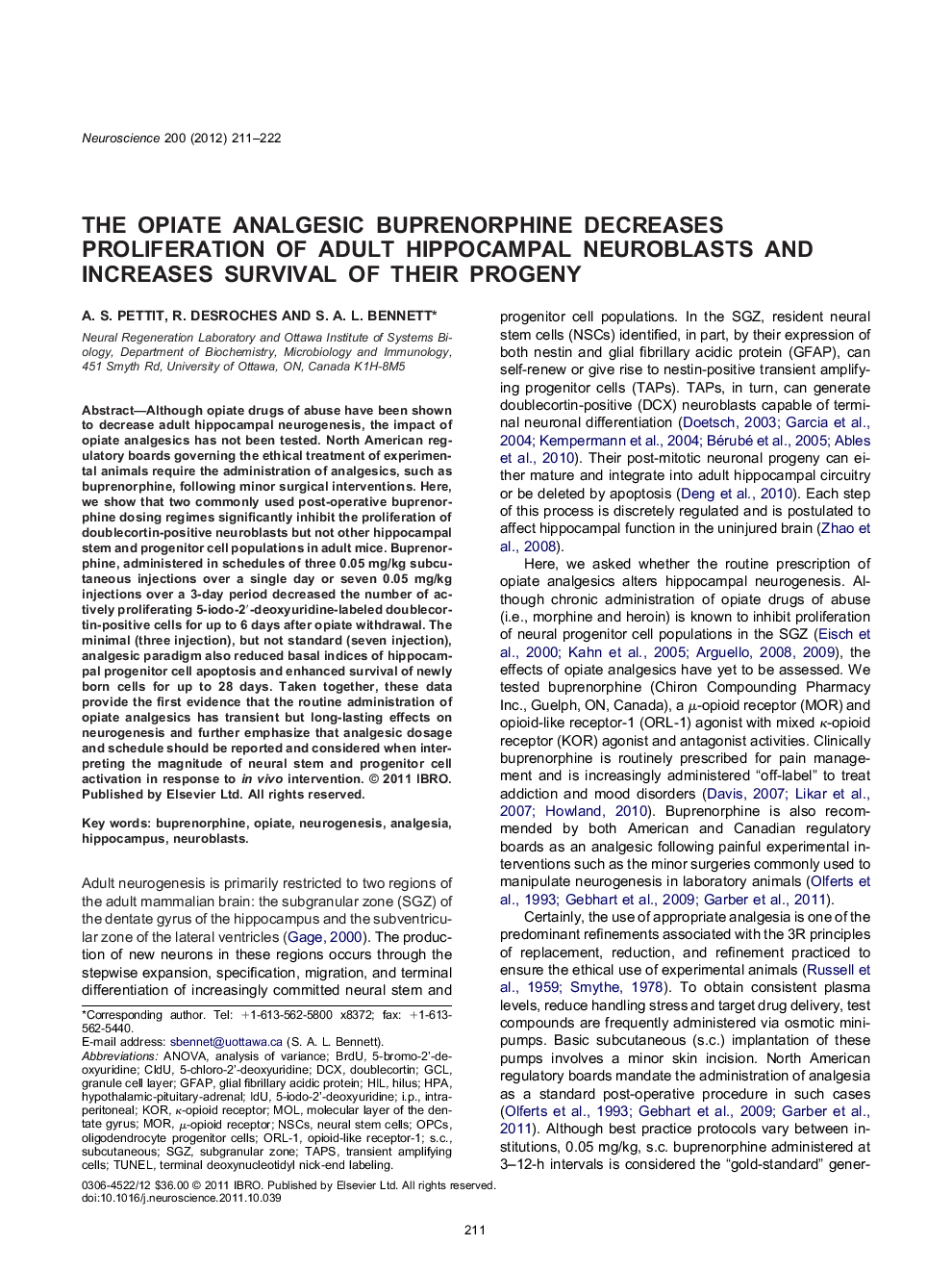| Article ID | Journal | Published Year | Pages | File Type |
|---|---|---|---|---|
| 4338644 | Neuroscience | 2012 | 12 Pages |
Although opiate drugs of abuse have been shown to decrease adult hippocampal neurogenesis, the impact of opiate analgesics has not been tested. North American regulatory boards governing the ethical treatment of experimental animals require the administration of analgesics, such as buprenorphine, following minor surgical interventions. Here, we show that two commonly used post-operative buprenorphine dosing regimes significantly inhibit the proliferation of doublecortin-positive neuroblasts but not other hippocampal stem and progenitor cell populations in adult mice. Buprenorphine, administered in schedules of three 0.05 mg/kg subcutaneous injections over a single day or seven 0.05 mg/kg injections over a 3-day period decreased the number of actively proliferating 5-iodo-2′-deoxyuridine-labeled doublecortin-positive cells for up to 6 days after opiate withdrawal. The minimal (three injection), but not standard (seven injection), analgesic paradigm also reduced basal indices of hippocampal progenitor cell apoptosis and enhanced survival of newly born cells for up to 28 days. Taken together, these data provide the first evidence that the routine administration of opiate analgesics has transient but long-lasting effects on neurogenesis and further emphasize that analgesic dosage and schedule should be reported and considered when interpreting the magnitude of neural stem and progenitor cell activation in response to in vivo intervention.
▶Buprenorphine inhibits proliferation of DCX+ neuroblasts in the adult hippocampus. ▶The impact of buprenorphine on adult hippocampal proliferating cell number is transient and independent of pain management. ▶Buprenorphine enhances cell survival in adult hippocampus. ▶An abbreviated schedule of opioid analgesia promotes the survival of NPC-derived neurons and glia.
